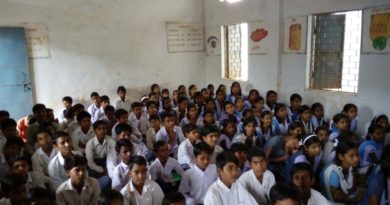
Downfall of the Derg Day is Ethiopia’s biggest national holiday. It is observed every year on 28 May. On this day in 1991 the collapse of the Derg Day signals the culmination of the authoritarian Derg Dictatorship.
The Derg was founded by low ranking Ethiopian Army officers and the police, headed by Chairman Aman Andom in June 1974 as the coordinating Committee of the Armed Forces , Police and Territorial Army. The Derg officially was dubbed the Provisional Military Administrative Council and overthrew the Ethiopian Empire and Emperor Haile Selassie amid widespread demonstrations in September 1974.
Derg is the short name for ‘The Coordinating Committee of the Armed Forces, Police, and Territorial Army’.The committee was formed to deal with corruption in the military and its actions were supported by the emperor, ignoring the fact that he himself would soon be imprisoned.
In the mid-1980s, Ethiopia was ravaged by a number of problems, including droughts, the economic downturn, starvation in 1983-1985, an growing reliance on foreign assistance, mismanagement, inequality, the effects of a Derg flawed strategy, the Eritrean War of Independence and the Ethiopian Second World War. In 1987 Mengistu abolished the Derg and established the People’s Democratic Republic of Ethiopia under the leadership of the Workers ‘ Party of Ethiopia.
Since 1930, Ethiopia was ruled by Emperor Haile Selassie. The oil crisis of 1973 in Ethiopia resulted in strikes and famines and perception turned against the emperor.
On 12 September 1974, the Derg (which means the Amharic committee), a Soviet-backed military dictatorship headed by Mengistu Haile Mariam, detained Haile Selassie in a coup d’état. The country was renamed Ethiopia’s People’s Democratic Republic, and in March 1975 its monarchy was abolished.
From 1974 to 1991, the Derg Communist regime privatized all means of production, including land , housing, farms and industry. In the face of uncertainties about their land rights, smallholders, who are the backbone of Ethiopia ‘s agriculture, have become hesitant producing excess food for the market.
The Derg regime was characterized by the continuing Ethiopian Civil War, with at least 1,4 million deaths. The regime was also in control in the mid-80s when the country was ravaged and notified the international community by the catastrophic famine.In the late 1980s, under the Ethiopian Progressive Democratic Front (EPRDF) the opposition rebel movements became more united, and a change of leadership of Soviet Union indicated that Derg had little financial or military assistance from any Soviet bloc region.
EPRDF forces advanced in Addis Abeba in May 1991, following significant territorial gains in the country. Without intervention by the Soviet Union, on 21 May 1991, Mengistu fled Zimbabwe and ended the Derg regime.
Ethiopia remains one of the poorest countries in Africa and the world, despite progress on economic reform since the 1990s. In 2001, Ethiopia became eligible for debt relief under the IMF / World Bank Heavily Indebted Developing Countries programme, and in 2005 Ethiopia was one of the countries gaining from 100 percent debt relief from IMF , World Bank and African Development Bank loans.






